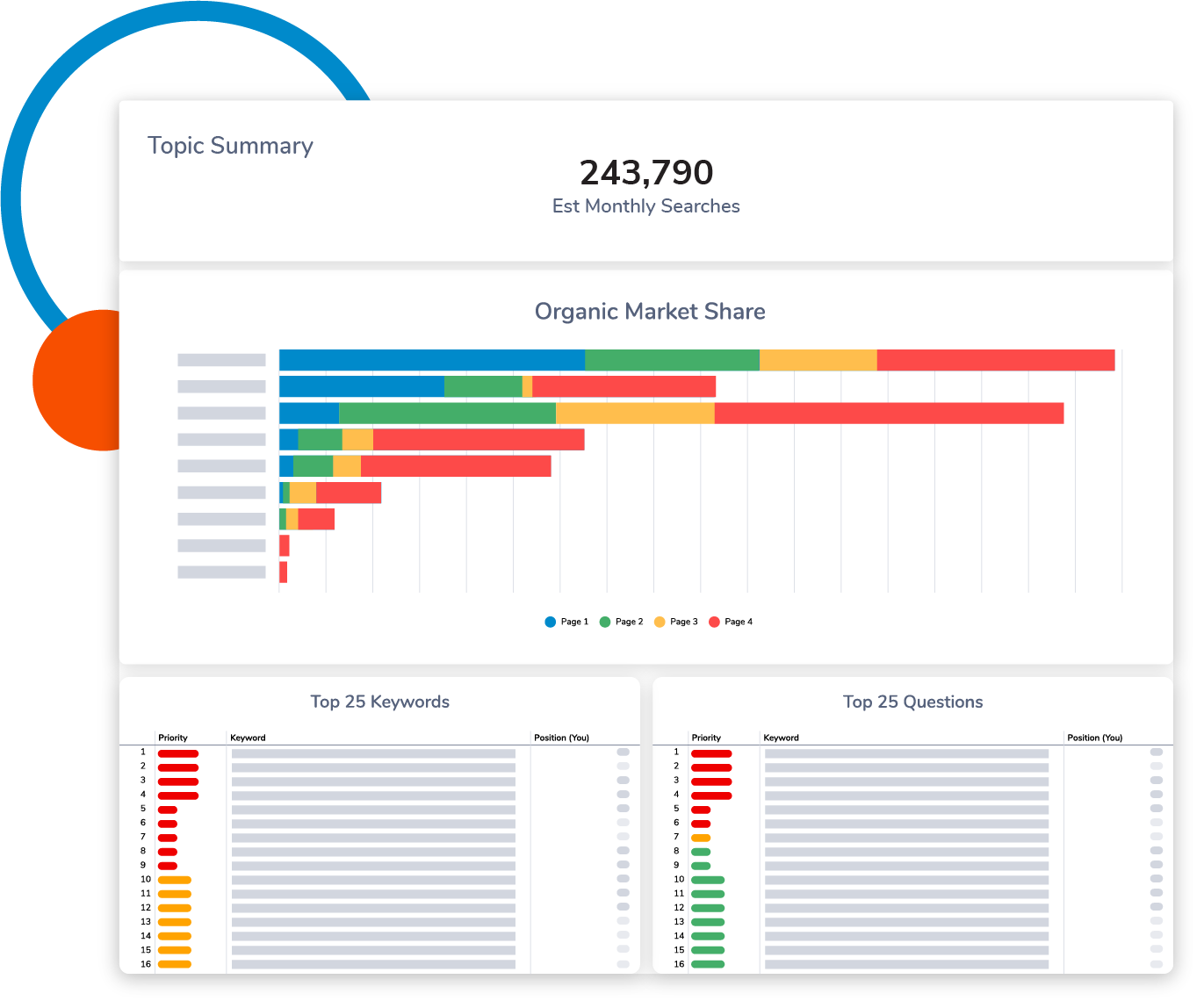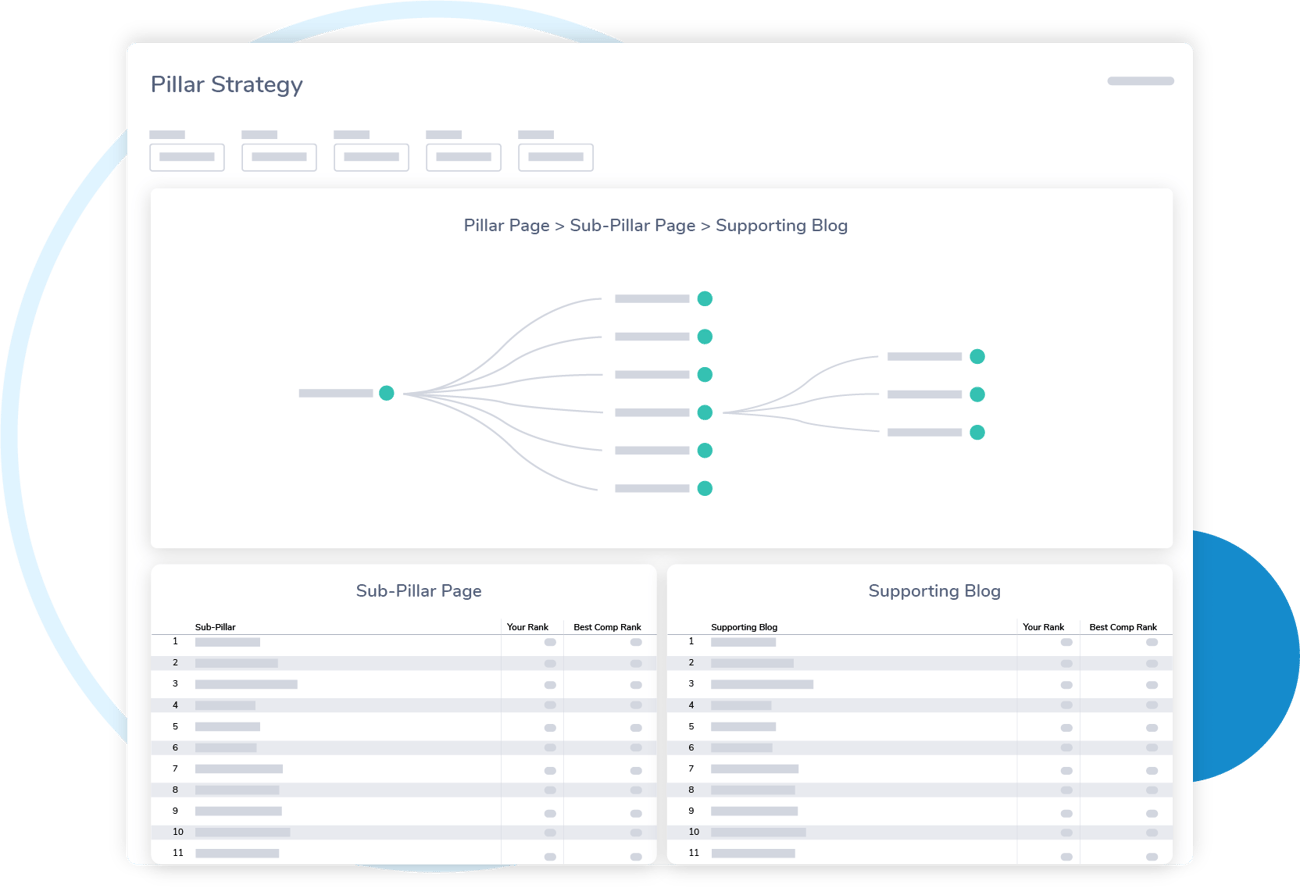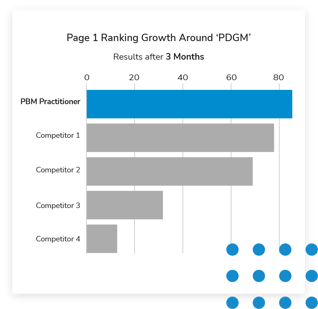The Different Types of Keyword Research
Each company’s unique buyer journey and marketing goals require a different set of keyword research needs. Understanding the different types of SEO keyword research requires understanding the different types of goals that are achieved with content, and how keyword lists can be custom-created to achieve those goals.
The types of keyword research are closely linked to the different kinds of search queries a website is trying to rank for.
Let’s get to it - what is keyword research?
Keyword research is trying to pinpoint the search terms and phrases that your audience is searching, and how to include those keywords in your content.
For every type of search ranking, you might want to win—paid ads, local search, featured snippets, and more—there’s a different type of keyword required to win it.
How Many Types of Search Results Are There?
Search engines deliver results differently for each user, based on what they have typed into the search engine. There are three main ways audiences tend to search for information.
What Are the 3 Main Types of Search Queries?
1. Informational Searches
These are searches made with the intention of learning more about a problem and its possible solutions. For instance, someone looking for a new cell phone provider might search for “cell phone deals” or look for a keyword phrase that includes their city or region to find the best coverage in their area.
2. Navigational Searches
These are searches made with the intention of getting to a specific webpage. For instance, if someone needs to find the branded web portal to pay their phone bill, they might search for “PhoneCom payment portal.”
3. Transactional Searches
These are searches made with the intention of carrying out a purchase. For instance, someone ready to sign up for a new cell phone plan might search for “PhoneCom sign up page” or information like “cell phone contract negotiation tips."

Understanding why customers are entering the search query they are using is just as important as knowing the keyword phrase itself. If you can address the feelings and thoughts the audience has at the moment of their search, it makes it easier to get their attention. Are they trying to learn more, or just get a task done?
We’ll talk more about the importance of these distinctions from a marketing perspective later. For now, let’s stay focused on the different types of search results a user might get back after they enter a query into a search engine. Results come in different formats, including:
- Paid ads: These often come at the top of the page or in a sidebar, with text ads being the most popular.
- Localized recommendations: These may come up as a map or with small snippets about each business including reviews and contact info.
- Images and video: Users may specifically search for images and video, or high-quality relevant content may be served as part of the results depending on what the user searched for.
- Featured snippet: Also sometimes called the answer box, this is a piece of content that is given expanded space and relevance on the first page of search results.
- Organic link ranking: This is the list of results that appear after paid results, based on relevance, the presence of keywords, past traffic to the site, length, and many other factors of organic search ranking.
These are just some of the types of ways search results are delivered, with news, eCommerce, and jobs postings also having distinct rules.
Each type of ranking is won with a unique strategy, including the type of keyword research that is needed. Some rankings like paid search and image may require different lengths of keywords, while organic link ranking and featured snippets rely more on examples of keywords in a sentence and answering a user’s questions.
What Types of Keywords Are There?
Just like with the types of search queries, the types of keywords are as varied as each user. Some people might search for an entire question while others want to use just one or two words.
Often, as users educate themselves about a topic, they may conduct additional searches for more specific questions or to look for their ideal solution. That is why it’s important to target keywords of all lengths.

Three Keyword Variations
- Short-tail keywords are short, highly competitive search terms, like "cell phone plan."
- Mid-tail keywords are slightly more specific search terms, like "best cell phone plan" or "cell phone plan bundle".
- Long-tail keywords are phrases and questions longer than four words, like "what to look for in a cell phone plan" or "cell phone plan bundles for families".
You might notice in the above list that our short-tail keyword, cell phone plan, is also included in every single one of the mid-tail and long-tail keywords on the list. This degree of overlap will point companies in different directions to create content that is the most relevant for users.
Speaking of creating content, it’s time to circle back to our question from earlier about what is the purpose of keyword research? The purpose of keyword research is to help companies align their web content, social media presence, blogs, emails, sales operations, and customer support with the needs, worries, and desires of the customer and potential customer.
But of course, those needs, worries, and desires are different at every stage of search.
Remember earlier when we talked about informational, navigational, and transactional search queries? Let’s examine now how each of these relates to marketing:
Types of Keywords in Digital Marketing
- Informational Keywords are also sometimes called “know” keywords. At this phase of the customer journey, they are still looking for information about the different products and services on the market that might interest them. Informational keywords can be used as the topics and titles for content that catches the attention of users at this early, critical stage of the process.
- Navigational Keywords are also sometimes called “go” keywords, as audiences look for the places they want to go. While you may not be able to strongly compete for keywords that are brand names of the competition, you can create content like comparison lists or case studies to stand out in this stage of the consumer’s search.
- Transactional Keywords, sometimes called “do” keywords, are the ones customers search for when they are ready to buy. These may include the name of your company, as well as information about contract terms and fees.
The different types of keyword research you might need to do depends on the buyer stages you are targeting and the kinds of content you are creating to win the attention of audiences. Maybe you want your videos to target buyers making informational searches, while paid ads are targeted more at those who are ready to carry out a transaction. Each will require its own keyword list.
And remember, whether you are targeting informational, navigational, or transactional keywords, it’s important to have a robust list of varying lengths of keywords. Those options will help you to meet each customer and potential customer where they are—short-tail, long-tail, or in between.
Different Types of Keywords In SEO
Outside considering the types of keyword research for length and user context, you may also be thinking about how closely the keyword has to match in different search engines. The issue differs for paid and organic search strategies.
In organic search, keywords should match closely, though content creators may also use a few stop words that are generally ignored by search engines to make the content more readable or understandable.
But for paid search advertising, also known as pay-per-click or PPC, different platforms have unique types of keyword matches to be considered during research.
What Are the Match Types for Keywords in Google Adwords?
- Exact Match: With exact match keywords in Google Ads, your ad will only show if a user searches for the exact keyword, with corrections for some misspellings and plural vs singular phrasing. However, if the order of the words is changed or more words are added, the ad will not be triggered.
- Phrase Match: Phrase match keywords in Google Ads are still highly targeted but allow more flexibility like additional words added at the beginning or end of the keyword. For instance, with phrase match, someone’s ad targeting “cell phone plan” would also be triggered by a search for “best cell phone plan.”
- Broad Match: Broad match keywords are the default setting for an ad campaign in Google Ads, meaning the ad will be served even for related search terms that don’t target the keyword at all. Someone targeting cell phone plans might have their ad served during a search for new phone cases. You can also add a modifier for broad search in Google Ads that requires a certain keyword to be included in the search to trigger the ad.
- Negative Match: Negative matches are keywords that you choose to exclude from your ad targeting. By entering negative match keywords, you can prevent the ad from triggering at certain times and instead better target the customers you want.
What Are the 3 Keyword Match Types Used in Amazon PPC?
- Exact Match: Exact match keywords in Amazon PPC should be the ones directly related to the product because the ad will only be triggered when the user enters the exact search phrase.
- Phrase Match: Phrase match keywords in Amazon PPC trigger your ad when a user searches for your keyword phrase by itself, or as part of a larger phrase. Just like with Google, if the phrase is divided by other words, the ad will not be triggered.
- Broad Match: Broad match keywords in Amazon PPC are able to contain keywords or synonyms in any order, allowing many shoppers or browsers to find the content they want. Some keywords in Amazon are pre-defined as broad match and cannot be targeted in any other way.
For both Google Ads pay-per-click and Amazon advertising, the initial keyword list must be long enough to give valuable insights for future iteration, while at the same time short enough for the sake of cost efficiency and messaging consistency.

DemandJump: The Best Keyword Suggestion Tool
When doing SEO research, you need an SEO keyword research tool that can take you from research to results. DemandJump automates the keyword research process.
With one-click SEO content briefs for new content, recommendations for updating current content, and linking content to revenue generated with marketing attribution you are sure to see results.
Work smarter with automation tools designed to make content marketers look like rockstars.
Write content that ranks fast, and save time doing it - get started today!













